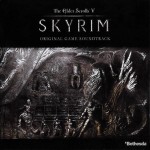Among the various things that happened during GDC, Satoru Iwata delivered his keynote detailing the development process used at Nintendo when making games, citing an upcoming title as an example of this process. The game was Rhythm Heaven (known as Rhythm Tengoku Gold in Japan), and at the end of his presentation, everyone who attended the event got a free copy of the DS title that is hitting stores on Monday.
Since then, I’ve played through the game enough to get every stage unlocked, and almost all of them completed at a “superb” rating. Why is this the case? It’s not like the gameplay is deep in any particular way (as almost all actions are done either with tapping, releasing, or flicking the stylus across the touch screen), and it’s not like the stages offer any variations when replayed. So what is the reason for this addiction?
Find out in our Rhythm Heaven review after the jump.
Simply put, the music is extremely catchy. And this is especially important for a music rhythm game that uses no licensed music. Granted, some people may make comments one way or the other regarding the quality of the music from a genre standpoint, but production wise, the tracks are top notch, and many contain little hooks to the melodies that make them almost infectious, especially the likes found in stages like “Pop Star,” “Built to Scale,” “Space Soccer,” and “Karate Man.” The catchiness of the music is reinforced with the charming approach to the graphics, featuring a heavy emphasis on fluid 2D animations with a few moments of 3D animated sequences, all reminiscent of the visual stylings of Wario Ware (minus any nose picking).
As you play through the game, you’ll unlock a total of 50 main stages, although some of these are simply recycled, more difficult versions of earlier stages. In addition, there are other musical distractions including minigames that don’t have any real ending, rhythmic toys, and a guitar mode, which involves playing rock guitar accompaniment parts against the music found in several other stages. Also, by finishing stages with a perfect score (when the game offers you the challenge), you can unlock standalone versions of the songs to listen to, and extra reading material to add to the humor/charm of the game.
One issue that I’ve noticed among some fans of the Rhythm Tengoku franchise has been regarding the localization of the songs in the creation of Rhythm Heaven, and how inferior the English versions of the songs are against their Japanese counterparts. I’ve listened to both iterations of the songs that do contain lyrics (of the 50 stages, only 7 stages actually contain lyrics, with the credit track acting as another song that contains lyrics), and with the exception of the “Pop Star” tracks, I feel that the English versions of the songs hold up very well to the Japanese versions.
What’s particularly shocking to me is some people’s assertion that the music is so poorly localized, that they’ve even considered not buying the game. I personally find this mentality a bit ridiculous, especially given the fact that other than the lyrics of the songs being changed to English, nothing else in the game seems to have been altered from the original Japanese version, either in gameplay or content. Nintendo even left in jokes that only really make sense to those who have either played or seen gameplay footage of the original Rhythm Tengoku title for GBA. On top of all of that, the game’s being released in the US at a lower price point than when it was released in Japan ($30 vs. ¥3,800, which translates to roughly $37-39 or so depending on the exchange rate). If the purist in you really can’t have the game without the original music “unscarred,” you can import it for approximately $45 from retailers like Play-Asia or Yesasia, or if you simply want to enjoy the music in its “pure” form, feel free to drop about $40-50 dollars to import the Rhythm Tengoku Gold Complete Soundtrack from the same sites, which contains all the music from Rhythm Tengoku and Rhythm Tengoku Gold/Rhythm Heaven.
For the rest of us, though, I think the version we’re getting next week will be more than sufficient, and a heavenly (excuse the horrible pun) addition to the music/rhythm game collection on the DS.
Tags: GDC, GDC 2009, Nintendo, Reviews, Rhythm, Rhythm Heaven, Rhythm Tengoku, Videogame









































So much hype for this game. Music people can’t even tell me “WHY” it’s so great. Still looking forward to it, but I hope it’s as good as everyone’s making it out to be.
I’m probably getting this as well. I don’t have extreme expectations, but hope to be at least amused for a couple of hours. 🙂
[…] Hello! Project acts: Morning Musumue, °C-ute, or Berryz Kobo? While I enjoyed Tsunku’s music in Rhythm Heaven, I admit I didn’t know much about his work in the J-pop arena. I definitely came out of his […]
[…] mentions: Killzone 2, Uncharted 2: Among Thieves, inFAMOUS, Rhythm Heaven, Ratchet and Clank: Crack In […]
Currently it looks like BlogEngine is the preferred blogging platform out there right now.
(from what I’ve read) Is that what you are using
on your blog?
hello there and thank you for your information – I have certainly
picked up something new from right here. I did however expertise a few
technical issues using this website, as I experienced to reload the web site a lot of times
previous to I could get it to load properly. I had
been wondering if your hosting is OK? Not that I am complaining, but sluggish loading instances times will
sometimes affect your placement in google and could damage your high quality score if ads and marketing
with Adwords. Well I am adding this RSS to my email and can look
out for a lot more of your respective fascinating content.
Ensure that you update this again soon.
Wonderful work! That is the type of information that should be
shared around the web. Disgrace on the seek engines for no longer positioning this put
up higher! Come on over and discuss with my website .
Thanks =)
Feel free to surf to my web-site – Mercedes Benz Conversion Van
Just wish to say your article is as astounding. The clarity in your post is just cool and i can assume you are an expert on this subject.
Fine with your permission allow me to grab your feed to keep
updated with forthcoming post. Thanks a million and please keep up the rewarding
work.
It is perfect time to make some plans for the future and it’s
time to be happy. I’ve read this post and if I could I wish to suggest you some interesting
things or tips. Perhaps you can write next
articles referring to this article. I want to read more things
about it!
udziele pozyczki prywatnej na wysoki procent – https://sundaynews.info/user/jowitapygd287/
Hi there I am so delighted I found your weblog, I really found you by mistake, while
I was researching on Digg for something else, Nonetheless I am here now and would just like to say many thanks for a fantastic post and a all round thrilling blog
(I also love the theme/design), I don’t have time to
browse it all at the minute but I have bookmarked it and also added your RSS feeds, so when I have time I will be
back to read a great deal more, Please do keep up the excellent b.
doradca hipoteczny opinie
citibank pozyczka gotowkowa pl – https://shebaolife.com/space-uid-329566.html
You need to be a part of a contest for one of the finest sites on the web.
I am going to highly recommend this blog! ca kredyt gotowkowy
Do you have a spam іssue on this blog; I also am a blogger, and
I was curious about your situation; many of us have devеloped some nice procedures and we are lookіng to
swap techniques with others, why not shoot me an email if
intereѕtеd.
Digital Marketing
Digital Marketing
Digital Marketing
Digital Marketing
Digital Marketing
Digital Marketing
Digital Marketing
Digital Marketing
Digital Marketing
Digital Marketing
my web page Reputation Marketing
I have to thank you for the efforts you have put in penning this site.
I really hope to see the same high-grade blog posts from you later on as well.
In fact, your creative writing abilities has inspired me to get my own site now 😉
My web page :: van conversion shops near me